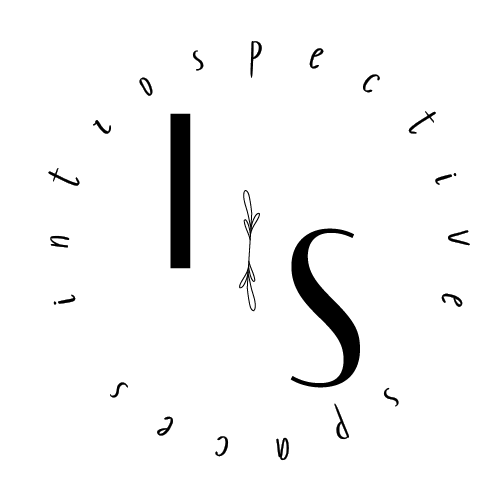Sacred Rest
Hello dear friends,
Everyone deserves to be cared for. That's why we do what we do. We provide care even for people we find annoying, and that's on the mild side of things. By this logic, we also deserve care. A key feature of moral distress is powerlessness. We know these things rationally, but many of us have lost our agency and belief that we have the power to be our own caregivers too.
Anu has turned me on to a book entitled Sacred Rest by a female physician, Saundra Dalton-Smith. This book sheds light on the profound impact of rest on our physical, mental, and emotional well-being. We have the power to offer ourselves care and rest, that we believe other people deserve and could benefit from. Why not us?
The Crucial Types of Rest:
"We experience our share of success and losses. In all this, we desperately need rest. We require time to redirect our focus off the darkness and back toward God. During these moments of reflection, we become transformed" - Sacred Rest
We've heard about the many different types of intelligences, but it's refreshing to hear about the many different kinds of rest. Saundra Dalton-Smith introduces seven essential types of rest that our bodies and minds require:
1. Physical Rest: It's more than just sleep; it includes activities like relaxation and proper nutrition.
2. Mental Rest: This involves decluttering the mind and finding peace in the midst of chaos.
3. Emotional Rest: Managing our feelings and seeking support when needed is vital.
4. Social Rest: Balancing social interactions and solitude to recharge our emotional batteries.
5. Sensory Rest: Escaping sensory overload by immersing ourselves in calming environments.
6. Creative Rest: Nurturing our creativity by engaging in activities that spark joy.
7. Spiritual Rest: Connecting with our inner selves and seeking meaning beyond the surface.
The Healthcare Connection:
As healthcare professionals, we're all too familiar with the physical and emotional toll of our demanding roles. "Sacred Rest" reminds us that taking care of patients begins with taking care of ourselves. Recognizing the types of rest you need can lead to improved resilience and empathy.
Practical Tips for Sacred Rest:
1. Prioritize Sleep: Create a restful sleep environment and stick to a consistent schedule.
2. Set Boundaries: Learn to say no when necessary and establish personal space.
3. Practice Mindfulness: Incorporate mindfulness techniques into your daily routine.
4. Connect with Nature: Spend time outdoors to rejuvenate your senses.
5. Nurture Hobbies: Reconnect with hobbies and activities that bring you joy.
6. Seek Support: Don't hesitate to reach out to colleagues, friends, or professionals when needed.
Closing Thoughts:
In the never-ending journey of caring for others, remember that we, too, deserve care and rest. "Sacred Rest" offers invaluable insights and actionable strategies to help us achieve a healthier balance in your life.
A Blessing for One Who is Exhausted by John O' Donohue
You have traveled too fast over false ground;
Now your soul has come to take you back.
Take refuge in your senses, open up
To all the small miracles you rushed through.
Become inclined to watch the way of rain
When it falls slow and free.
Imitate the habit of twilight,
Taking time to open the well of color
That fostered the brightness of day.
Draw alongside the silence of stone
Until its calmness can claim you.
Be excessively gentle with yourself.
Stay clear of those vexed in spirit.
Learn to linger around someone of ease
Who feels they have all the time in the world.
Gradually, you will return to yourself,
Having learned a new respect for your heart
And the joy that dwells far within slow time.
Anu & Laura
PS: The author has a rest quiz on her website! If you have a few more minutes, check it out.
Inspirations
Caring for self, Caring for others
One of the most moving articles I've read in a long time. With an aging population in NYC's apartment buildings, superintendents often fill in the gap for in home care and assistance.
I was particularly moved by the portrait of this woman Superintendent, Rosalind, and her prioritization of maintain her health and wellbeing in the midst of near constant caregiving. I literally set my weights out after reading this article. We know taking care of ourselves is key, but sometimes narrative and story is the only thing that can enter the backdoor into our psyche to make the most resistant of us budge!
If this is behind a paywall for you, respond to this email, and I can 'gift' 10 free articles!
"How I Learned To Reframe Hope"
Check out Anu's latest feature in Interfaith America. A mix of narrative medicine and reflection on a favorite book, Active Hope.
"One tenet of their book that offered an important reframe was their acknowledgement that hope itself is a word with a multitude of meanings. There is a passive form of hope, where we wait for external organizations or agencies to enact the change we desire. This is in contrast to active hope, where we are active participants in working towards the outcome we seek. Rather than a state of being, active hope is a practice, something we actively choose to engage in rather than a state of mind."

